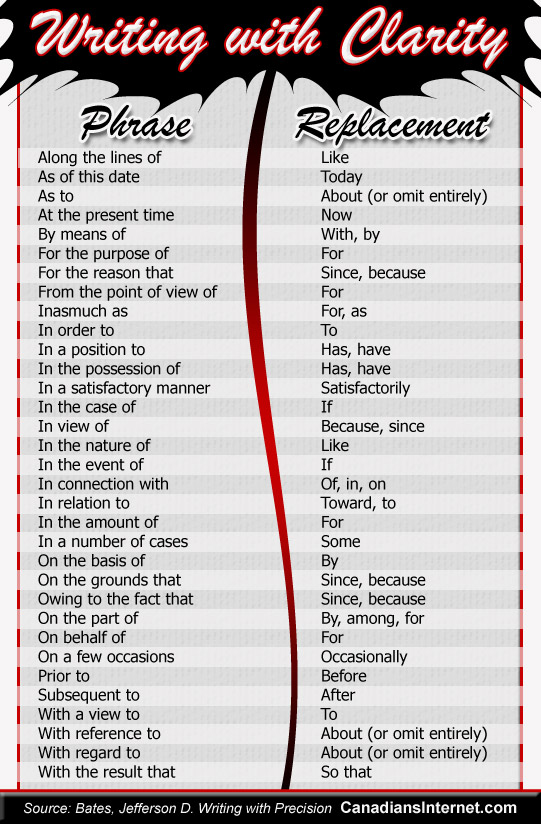Online writing may include blogging, marketing copy, website or newsletter content and they all share the need for clarity. One of the first things we learn about writing online is we have seconds to capture a reader and their attention span is short. Clear, concise writing wasn’t invented online, however, it has always been taught to writers as a best practice. Long before the Internet, George Orwell said, “If it is possible to cut a word out, always cut it out.”
I have a full bookshelf of writing books and I hold certifications as an Editor, Technical Writer and Business Writer. It’s probably due to a love of writing that I still tend to meander and wander around a topic, even though I know better. The result is “wordy” writing that can lose the reader’s focus and with it, the main point. I correct it when I edit the finished copy, but I save myself a lot of time if I retain my focus in the first place. It’s a simple enough matter of writing for the reader instead of writing for the sheer joy of it.
“Wordy” writing may include word repetition, words with overlapping meanings, or long prepositional phrases.
- Word repetition in a paragraph is sometimes required for clarity but it should be kept to a minimum. In today’s digital world, we should avoid too much word repetition in the name of SEO, which results in content that is confusing and difficult to read.
- Words with overlapping meanings include phrases like “the reason is because”, when one word makes the point, “because”.
- Long prepositional phrases are the most common “wordy” problem, so we’ve designed the following infographic-style cheat sheet to keep us all in the proper web writing frame of mind. I’ve found just reading it over occasionally is enough to keep me focused. It’s OK to use long phrases for emphasis sometimes, but if you avoid using them habitually you will improve the clarity of your writing.
